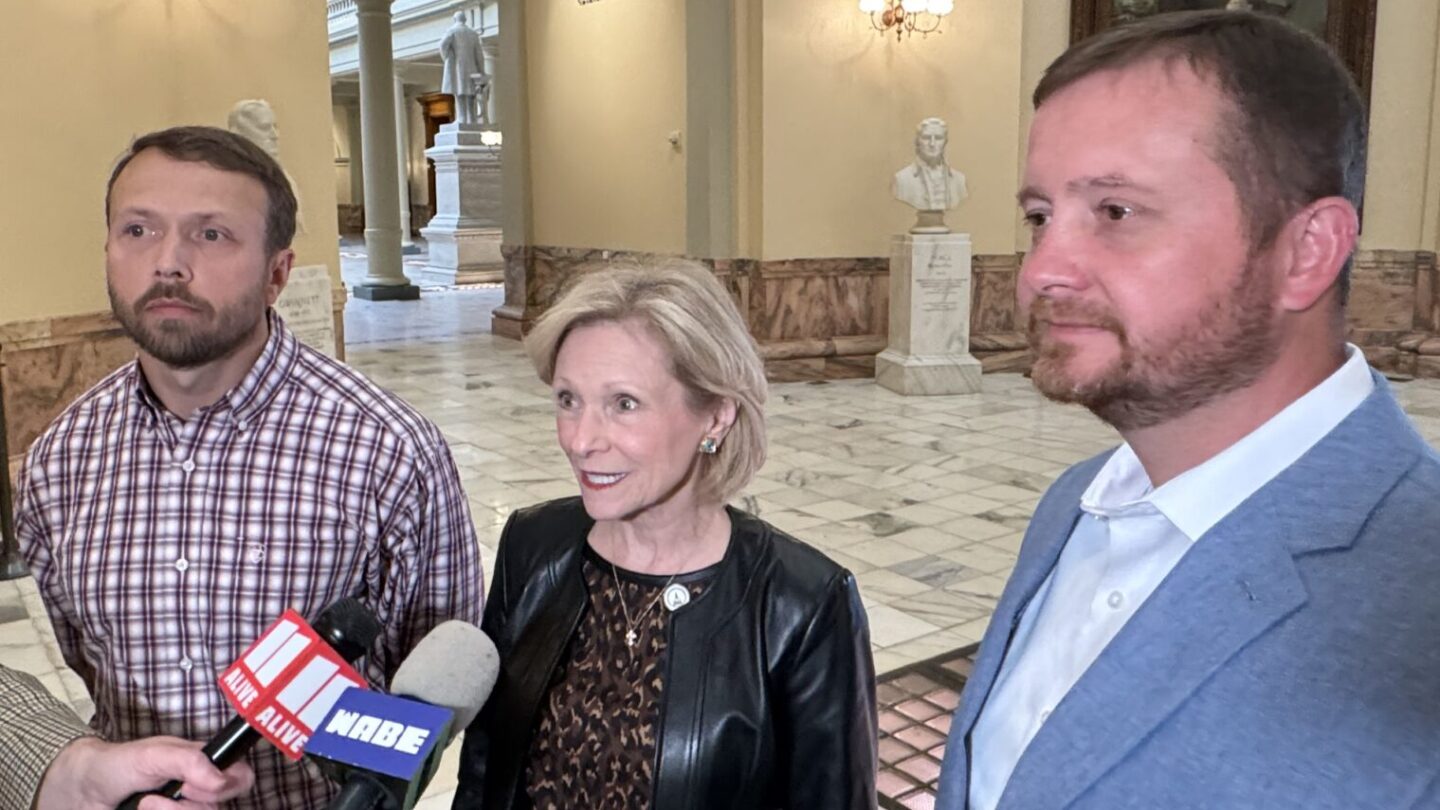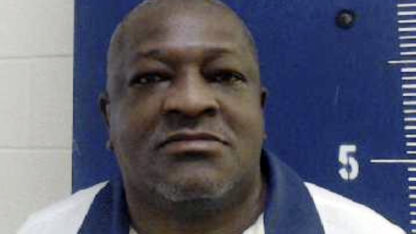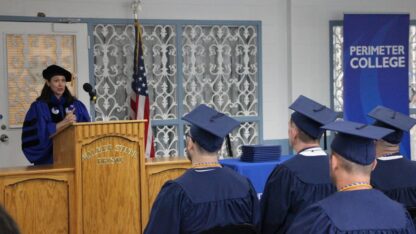Lee Clark says he has struggled to get by since being released from prison in 2022 after being wrongfully convicted of a Floyd County murder more than two decades ago.
At 45, Clark is self-conscious about the skills he lacks for his age as he labors at a job doing drum maintenance at Pirelli Tire, making just over minimum wage.
But a proposal for the state to compensate Clark for the long-ago legal errors that sent him away to prison for half his life is among the handful for such measures piling up right now in Senate Appropriations. Thursday is the last day for these wrongful conviction compensation proposals to make it out of committee.
“Twenty-five years of my life is gone. I can’t get that back,” Clark told reporters at the state Capitol Wednesday. “I’ve missed so much stuff. I don’t have kids. I don’t have anything. Without (the compensation), I ain’t got no future.”
Clark and another man, Cain Joshua Storey, were convicted of murdering their friend, 15-year-old Brian Bowling, at a party in 2016. But podcasters and attorneys found new evidence proving their innocence and leading to the convictions being overturned.
Lawmakers have proposed paying Clark about $1.8 million, or $72,000 for every he was wrongfully imprisoned.
In another Floyd County case, Joey Watkins was exonerated last year after serving more than 20 years in prison for the murder of 20-year-old Isaac Dawkins in 2000. Here too, podcasters and attorneys uncovered errors that had been made at trial, such as key information being withheld from the defense.
A separate measure would compensate Watkins $1.6 million.
Watkins said he has been unable to get a business loan because he lacks the tax history needed to support an application. He said his dream is to open a used car business like his father once had.
“Please, please look at it,” Watkins said of the proposal. “I’m not bitter when I say this, because everything happens for a reason. But when you’re wrong in the state of Georgia, and they know you’re wrong, you will get punished to the full extent.
“But when you’re not wrong, please, do the same thing. Help us. That’s all we ask. We’re not asking for favors or anything like that. We’re just asking for help,” he said.
There are also three other wrongful conviction compensation resolutions left pending from last year. All five measures are stuck in the Senate Appropriations Committee, which is led by Vidalia Republican Sen. Blake Tillery. Attempts to reach Tillery for comment Wednesday were unsuccessful.
A bipartisan group of House lawmakers who are carrying these wrongful conviction compensation measures made a last-ditch plea Wednesday for the Senate to act.
Rome Republican Rep. Katie Dempsey, who is sponsoring the measures for Clark and Watkins, said the complexity of the cases and personal impact of the compensation measures can make some lawmakers uneasy.
And she said some lawmakers may also want to be “the jury and the judge to retry the cases” in search of mistakes.
“I have just pled intensely that these are so egregious,” Dempsey said of the pending proposals.
There is also a House proposal left over from last year that would change the way the state handles compensating those who are wrongfully convicted. That bill would create a panel of experts that would evaluate the claims, although it would still be left to lawmakers to set aside funding for the payouts.
“The state can’t undo the harm that it caused these men as well as others that were wrongfully convicted. They were innocent,” said the bill’s lead sponsor, Atlanta Democratic Rep. Scott Holcomb, “I’m a former prosecutor and generally speaking, the system works but it doesn’t always and, in those circumstances, it’s extremely important that the state take action.”
“They’re not able to pursue their careers, they’re not able to save for retirement, and when they come out, they have real needs,” he said.
Sen. Randy Robertson, a Cataula Republican and former law enforcement officer, voiced concerns last year over whether people who are receiving compensation are truly innocent or instead freed on a legal technicality.
But Holcomb argued his proposal, which cleared the House last year with a 157-17 vote, would take politics out of the process and create safeguards to help ensure the process only helps innocent people.
“Every day that we don’t either take up these individual resolutions – or more specifically, every day we don’t pass the legislation that would authorize a commission to look at this over time consistently – we are saying we don’t really care about guilt or innocence,” said Rep. Stacey Evans, an Atlanta Democrat.
Evans is sponsoring holdover proposals from last year that would compensate Mario Stinchcomb and Michael Woolfolk. Both men were wrongfully convicted of the 2002 murder of Jaketha Young in Atlanta.
Another stalled proposal would compensate Terry Talley, who was wrongly convicted of a series of rapes that happened in 1981 in LaGrange.
And a fifth measure would compensate Devonia Inman, who was wrongly convicted of the 1998 murder of the Taco Bell manager in Adel.
“I really feel like the people who made these mistakes and put him in prison falsely, we need to go after them too,” Rep. Penny Houston, a Nashville Republican who is sponsoring the measure for Inman.
Georgia Innocence Project lawyers represented Talley, Inman, Clark, and Watkins in their exonerations. The organization and the law firm Nelson Mullins have worked on the Talley, Clark, and Watkins compensation resolutions, and the Troutman Pepper firm has worked on the Inman claim.
This story was provided by WABE content partner Georgia Recorder.









